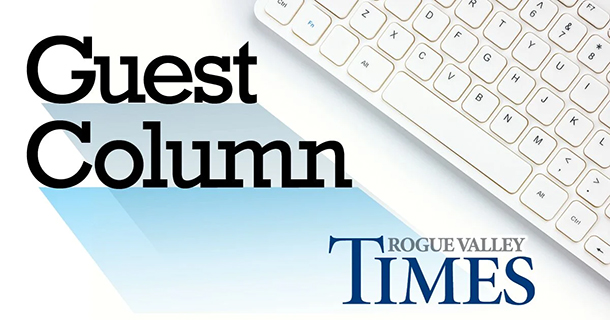GUEST COLUMN: Budgeting into the unknown with the Oregon Legislature
Published 6:00 am Saturday, May 24, 2025
The switch has flipped on the last stretch of this year’s Oregon legislative session and the central dynamic for the last and busiest phase ahead has been set. So, possibly, has the campaign dynamic for next year’s legislative elections.
Part of it involves a raucous economic debate over the administration of Donald Trump.
Most of the rest concerns how little predictability exists for conditions going forward.
The kickoff was a standard trigger of the Oregon legislative schedule, the release of the May Economic and Revenue Forecast from the Office of Economic Analysis. The last such report during this year’s session, it will form the basis for the legislature’s decisions on how much to spend and how much income should be brought in — through existing or new taxes. Normally, it can provide a clear direction for inking in policies and budgeting plans evolving up to this point.
The headline from this new report does say that less money is likely to be wrung out of existing state taxes than had been expected in previous estimates — a decrease not in revenue but in what was previously expected.
But it also emphasized a deep well of unknowns.
The report’s summary said it “comes at a time of exceptionally heightened uncertainty. Not only is it too soon to understand how the economy is responding to actions already taken — but, more broadly, the ultimate scope of critical policy decisions remains unknown. For example, even preliminary economic impacts from tariffs are unlikely to materialize in vital statistics such as employment or consumer prices for another month or two. Further, final details on tax reforms and budget reductions are only vaguely coming into view, and the eventual effective tariff rate will depend on the success of negotiations which have not yet occurred.”
The report did not specifically say a recession is likely — it even included a number of reasons it may not happen — but figured chances of a downturn at 25%, a possibility higher than usual.
The uncertainty is key. One forecaster said, “I can’t remember more tumultuous circumstances just going into producing this particular forecast.” …
Coming weeks will be a budgeting session for gamblers: How confident are you of what conditions will apply at the end of this year and a year from now? Do you cut state spending, or raise taxes, when one or both may not be necessary? Those concerns may come against a background in which the state may be called on to help backfill long-expected federal help which is being withdrawn.
The Republican take on the budget appears to position this year’s budgeting cycle essentially like any other, with problems a function of the majority party’s inability to budget well enough. Senator Bruce Starr, R-Dundee, said for example, “This should be a wake-up call. With a half-billion-dollar shortfall, lawmakers must focus on core services and cut the waste.”
Representative E. Werner Reschke, R-Malin, said in a constituent newsletter, “Democrats need a doom and gloom message so that they can justify their plans for tax increases. If the headlines had been ‘State to receive record revenues for upcoming biennium’ do you think their new taxes message would be accepted by Oregonians? Of course not.”
The problem with those approaches is the unusual level of uncertainty in the latest estimates, something sharply different from past cycles. But they are likely to emerge in next year’s campaigns.
Democrats argued the circumstances are unusual, pointing to the Trump Administration, and especially its tariffs and spending actions, as the prime mover of uncertainty. House Speaker Julie Fahey, for example, said, “today’s revenue forecast confirms what economists have been telling us: the Trump administration’s reckless decisions are damaging our economy. … Oregon is particularly sensitive to the fallout from federal trade policies that have been changing on a whim since Trump’s inauguration.”
Look for the remaining month-plus of the legislative session to turn into a debate over the effect the Trump administration is having on Oregon. The contours of that discussion will likely shape politics in Oregon and beyond all the way to next November.
Randy Stapilus has researched and written about Northwest politics and issues since 1976 for a long list of newspapers and other publications.






